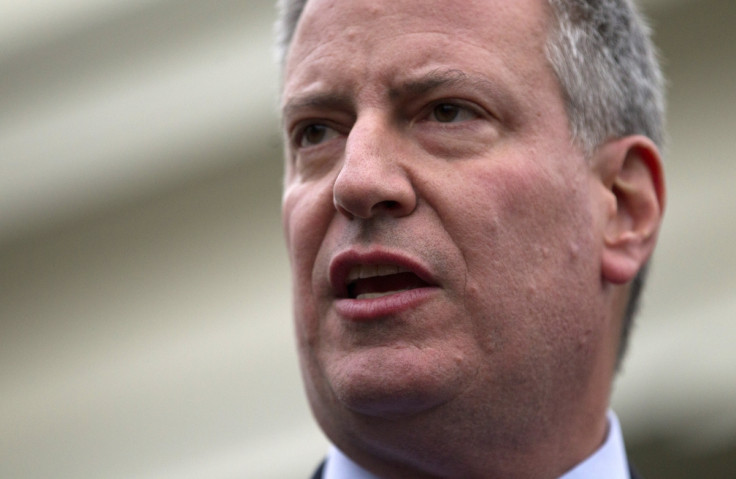New York Mayor Bill De Blasio Takes on Super Rich

New York's new mayor Bill De Blasio has gone head-to-head with the city's wealthy establishment over plans to increase taxes on top earners.
Only days after the 52-year-old Democrat pledged to reduce the gap between rich and poor and end the 'Tale of Two Cities' in his inauguration speech, one expert has rounded on his policies.
"Bill de Blasio is strikingly out of step with the political agenda of New York for the past two decades – this is back to the future stuff," Columbia university professor William Eimicke, who has held several positions in New York government, told the Guardian.
One of De Blasio's central pledges ahead of his victory was to extract an extra $530m (£323m) in taxes from those earning more than $500,000 a year to pay for universal pre-kindergarten and after-school programmes.
But with the final say over the tax hike in the hands of the state's governor Andrew Cuomo, who is up for re-election in November, Eimicke said that De Blasio's chances of seeing the policy written into the statute books were "slim to none".
Before De Blasio's election, outgoing mayor William Bloomberg warned that the tax hike would cause an exodus of the affluent to cities that tax the wealthy less.
"Places like London are going to eat our lunch," he said.
"Almost anyone with a self-perceived degree of affluence will be uncomfortable with de Blasio's tax ideas," said Michael Steinhardt, chairman of New York-based asset manager WisdomTree Investments Inc.
Steinhardt said that though growing inequality is troubling, "perhaps even more so is the thought that more government spending is the way out of our problems."
However, as De Blasio took to the snow-covered streets of New York, shovel in hand, to offer support to citizens affected by the blizzard that has struck the city, many argue that De Blasio's 73% share of the vote speaks of profound dismay at rising inequality in a city where a super privileged 1% receive 39% of the city's income while homelessness has soared to its highest level in years.
Peter Beinart, a liberal essayist for the news website The Daily Beast, claimed that De Blasio's victory augured a new era in US politics.
"The deeper you look, the stronger the evidence that de Blasio's victory is an omen of what may become the defining story of America's next political era: the challenge, to both parties, from the left," Beinart wrote.
In his drive to help the worst off, De Blasio also wants to introduce affordable housing quotas for developers, and extend holiday leave to 300,000 New Yorkers in jobs.
Writing in the New York Times, Michael Powell said that many of the jobs added in recent months offered "low wages and come without the benefits that are markers of civilised societies."
Some though are sceptical that De Blasio will be able to address the underlying forces driving rising inequality even if he does push his tax policies through the state legislature.
.
"Politicians see a tremendous market out there now for progressive rhetoric," Elvin Wyly, a geographer at the University of British Columbia and a chronicler of the gentrification of America's cities told the New York Times. "But retail presentation of these politics is not the same as dealing with the fundamental production of inequality."
© Copyright IBTimes 2025. All rights reserved.






















